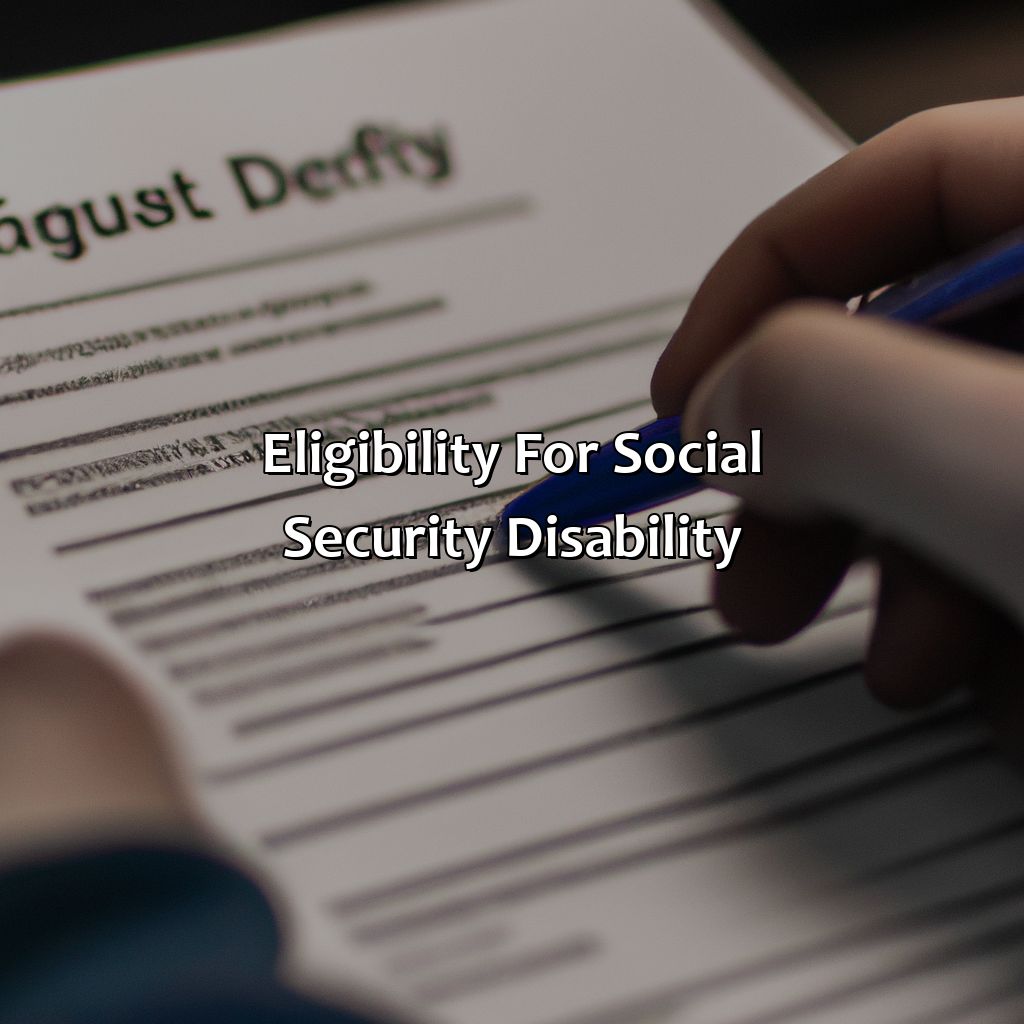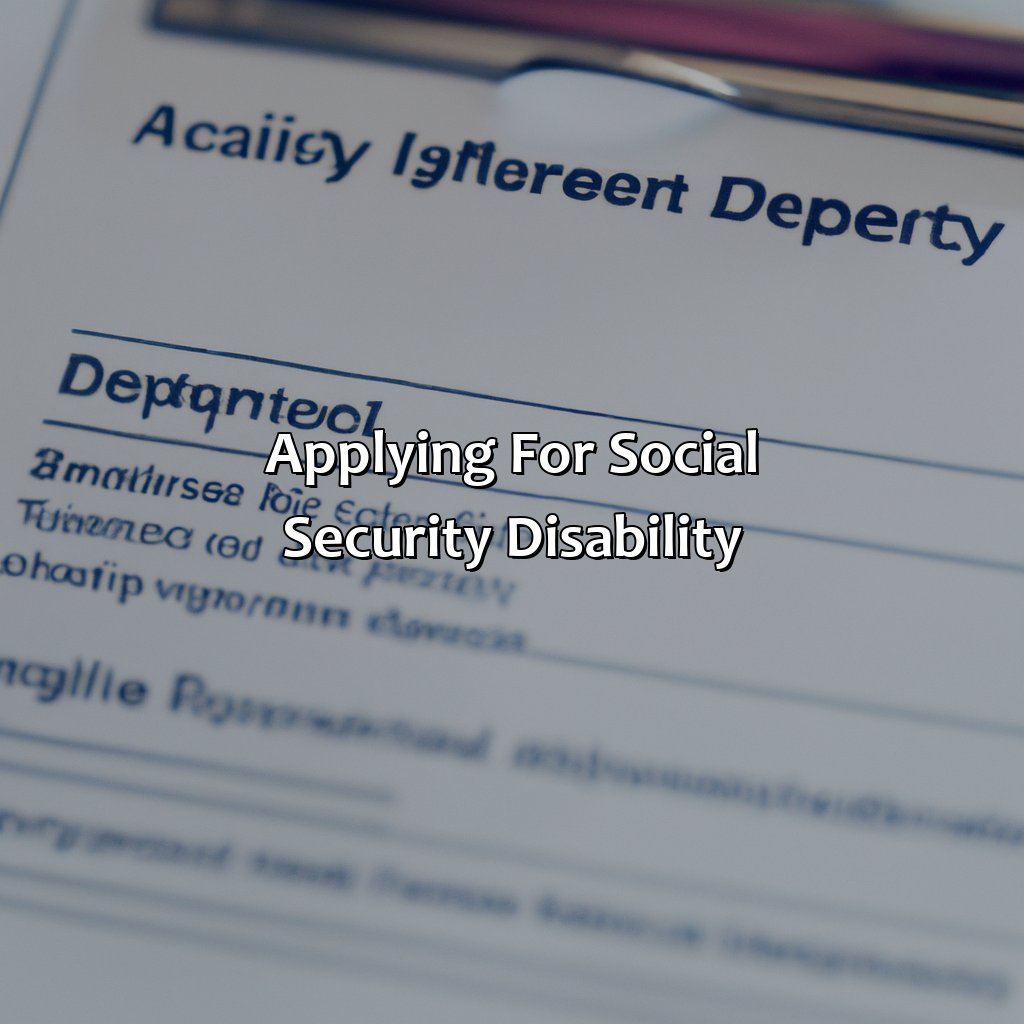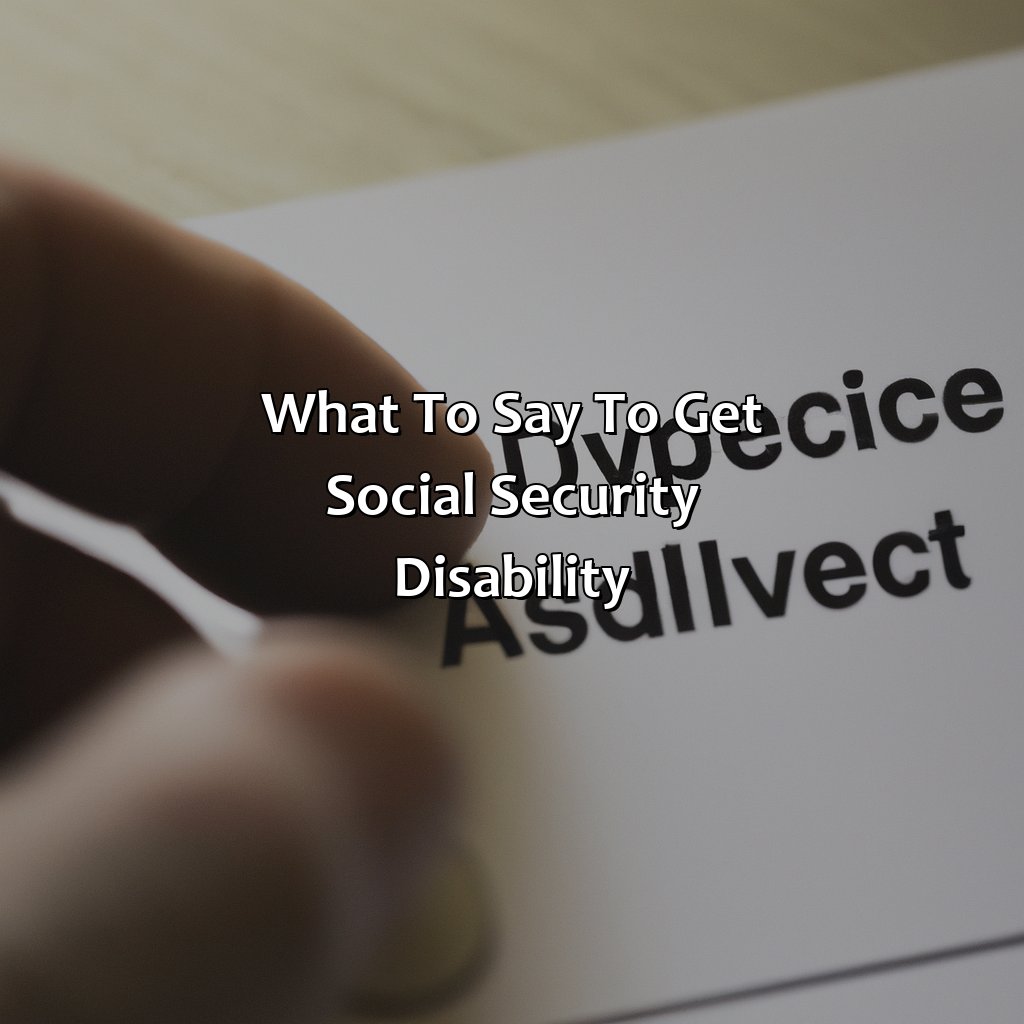What To Say To Get Social Security Disability?
Key Takeaways:
- Meeting the work and medical requirements is necessary for eligibility for social security disability benefits.
- Proving the existence and severity of a medical condition is essential for obtaining social security disability benefits, and gathering medical evidence and contacting a disability attorney can increase your chances of success.
- Appealing denied applications is possible through requesting a reconsideration, requesting a hearing before an administrative law judge, appealing to the appeals council, and filing a lawsuit in federal court.
Feeling anxious about appealing for Social Security Disability (SSD) benefits? Don’t worry, you are not alone! In this article, you’ll find the right words to help your SSD application get approved.
Eligibility for Social Security Disability
Social Security Disability benefits are available to individuals who are unable to work due to a physical or mental impairment that is expected to last at least one year or result in death. Meeting eligibility requirements involves satisfying both medical and non-medical criteria. Medical eligibility is determined by severity of the condition, while non-medical eligibility depends on factors such as age, work history, and citizenship status. It is important to understand these criteria and gather appropriate documentation before applying for benefits.
To qualify for Social Security Disability, an individual must have a medical condition that significantly limits their ability to perform work-related activities. This condition must be expected to last for at least one year or result in death. The Social Security Administration evaluates these conditions based on severity, duration, and functional limitations. Additionally, non-medical eligibility requirements must be met, including sufficient work credits based on age and minimum earnings thresholds. Citizenship or legal residency status may also play a role in eligibility determination.
It is important to understand the nuances of the eligibility process and provide thorough documentation when submitting an application. This may include medical records, work history, and other relevant information. Seeking assistance from a qualified attorney or advocate who specializes in Social Security Disability cases can help navigate the complex eligibility requirements and improve the chances of a successful outcome. It is also important to be patient and persistent throughout the process, understanding that appeals and denials are common.
To increase the chances of a favorable outcome, individuals applying for Social Security Disability should be proactive in seeking medical treatment, documenting their condition, and maintaining clear communication with their healthcare providers. Additionally, keeping a detailed and accurate record of work history and earnings can help establish eligibility for non-medical requirements. By understanding and meeting all eligibility criteria, individuals can improve their chances of receiving much-needed Social Security Disability benefits.

Image credits: retiregenz.com by Harry Duncun
Applying for Social Security Disability
Applying for Disability Benefits from the Social Security Administration
Submitting an application for disability benefits from the Social Security Administration can be an onerous process. It involves providing medical evidence of your disability, extensive paperwork and filling out medical forms.
Additionally, the SSA uses a complex five-step process that involves evaluating your medical condition and work history to determine whether you are eligible. It is crucial to provide all relevant information when applying, as incomplete applications can delay the process.
When applying for disability benefits, it is important to provide detailed information about your medical condition, work history, and activities that you cannot perform due to your disability. Medical evidence should be from reliable sources such as medical doctors and therapists.
Did you know that over half of disability claims are denied at the initial stage? With this in mind, providing comprehensive information and seeking expert advice can help improve your chances of approval.
Source: Social Security Administration

Image credits: retiregenz.com by Joel Washington
Appealing a Denied Application
Appealing a Social Security Disability denied application is a challenging process. It requires submitting a request for reconsideration within 60 days of the denial. In this request, provide additional evidence of your disability and its impact on your ability to work.
If the request for reconsideration is not successful, the next step is to attend a hearing with an administrative law judge. At this hearing, you will have the opportunity to present your case and provide relevant information.
It is important to have a qualified attorney to guide you through this process and increase your chances of success.
Pro Tip: Keep track of all documentation related to your disability and treatment, as it may be useful evidence in your appeal process.

Image credits: retiregenz.com by Joel Woodhock
Five Facts About What To Say To Get Social Security Disability:
- ✅ To get approved for social security disability, you must have a medical condition that significantly limits your ability to work. (Source: Social Security Administration)
- ✅ You must provide medical evidence, such as doctor’s reports and test results, to support your disability claim. (Source: Disability Benefits Center)
- ✅ It can take several months to a year or more to receive a decision on your disability claim. (Source: Disability Benefits Help)
- ✅ If your claim is denied, you can file an appeal and request a hearing with an administrative law judge. (Source: Nolo)
- ✅ It is helpful to seek the guidance of a disability lawyer or advocate to improve your chances of approval. (Source: The Balance)
FAQs about What To Say To Get Social Security Disability?
What is Social Security Disability and how do I qualify?
Social Security Disability is a government program that provides financial assistance to people who are unable to work due to a disability. To qualify, you must have a medical condition that prevents you from working and is expected to last at least one year or result in death. You must also have worked and paid Social Security taxes for a certain period of time, depending on your age.
What should I say when applying for Social Security Disability?
When applying for Social Security Disability, you should provide detailed information about your medical condition and how it affects your ability to work. Be honest and accurate when describing your symptoms and limitations, and provide as much medical documentation as possible to support your claim.
What should I avoid saying when applying for Social Security Disability?
When applying for Social Security Disability, you should avoid exaggerating your symptoms or downplaying your ability to perform work-related tasks. You should also avoid making statements that contradict your medical records or that suggest that you are able to work in some capacity. Be truthful and accurate, and focus on providing evidence that supports your claim.
What happens after I apply for Social Security Disability?
After you apply for Social Security Disability, your application will be reviewed by a disability examiner who will evaluate your medical records and other evidence to determine whether you meet the eligibility requirements. If additional information is needed, you may be asked to undergo a medical examination or interview. It can take several months to receive a decision about your claim.
What should I do if my Social Security Disability claim is denied?
If your Social Security Disability claim is denied, you have the right to appeal the decision. You should carefully review the reasons for the denial and gather any additional evidence that may support your claim. You may also want to consider hiring an attorney to help you navigate the appeals process and present your case effectively.
Can I work part-time and still receive Social Security Disability?
It is possible to work part-time and still receive Social Security Disability, but your income must be below certain levels. If you earn more than the allowable amount, your disability benefits may be reduced or eliminated. You should report any income to the Social Security Administration to ensure that your benefits are calculated accurately.


